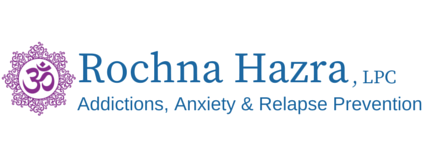Relapse Prevention: Looking back, Doug realizes that 4 years back alcoholism had taken over his life. but could he be risking Relapse again? You don’t tell your therapist everything. After all, you think, what if my therapist felt disappointed, felt let down or thought less of me? So, what do you do instead? You carry on hoping the problem will go away if you just ignore it. But this could put you at risk for relapse.
Let’s look at Doug’s situation:
Doug began seeing his therapist 5 years back. His wife had threatened divorce if he didn’t seek help for his excessive drinking. Doug began counseling reluctantly. He didn’t believe it would help. Actually, secretly he didn’t really believe he could quit. But as Doug began going regularly, he found himself opening up. He talked openly about feeling desperate about his failed attempts to quit. He let his guard down and and began contemplating quitting seriously. At his therapist’s urging, Doug attended a few AA meetings. There, he met people who had not only quit , but were also leading happy, carefree and fulfilled lives. As he talked to them, he was reminded of his care free days as a child hiking with his father. He had begun to believe that he could never ever re-capture that feeling of joy, wonder and contentment; but in these rooms he saw glimpses of it again.
Doug quit drinking and never looked back. That was four years back. His relationships improved, he moved up the ladder and became successful in his career. Recently, he was offered a position that took him by complete surprise. He was to be the head of a whole division in his company. He would be managing upwards of 150 executives — all brilliant and ambitious. It was totally unexpected but his superiors said that they had full confidence that Doug would do great. Doug had his doubts. Why him? he questioned. What did they see in him that wasn’t there in all of the people who would now report to him. His next thought was — he had to do well. He had to prove that they were right in choosing him. He had to be the best.
Doug had always been a hard worker. Now he doubled down. He worked long hours, demanded the best from his supervises and perfection from himself.
1. He began to miss AA meetings and continually rescheduled sessions with his therapist. He had to focus on work right now. He could not let people, who showed confidence in him, down. Six months went by. Doug had been doing well at work. Then one of his star team members quit. Just out of the blue. Apparently, he couldn’t take the pressure and the long hours any more. Missing AA meetings and therapy sessions puts Doug at risk for relapse.
2. Doug came home stressed and feeling somewhat anxious as well as resentful. As he tried to relax and watch some television, he was reminded of the days he could just drink a few glasses of wine to take the edge off a hard day. He realizes that he has been reminiscing the “good old days” for some time now. He remembered the fun that he and his buddies had when they all got together at their favorite bar and did shots. He has no contact with them any more. May be he could look them up again. In fact, the other day, he had looked up a buddy of his on Facebook. Of course, Doug is not going to tell his therapist about these thoughts. He knows what she is going to say. In fact, she doesn’t even need to say anything. Doug knows what is happening — he is at risk for a relapse.
Romanticizing the drinking days, thinking of getting together with his old friends, wanting to unwind with a glass of wine after a tough day at work are all signs that Doug is headed toward a relapse. 3. Doug knows that but he does not want to deal with it. Telling his therapist would mean that he would have to acknowledge it and do something about it. This again puts him at relapse risk.
4. Denial and Relapse Risk: Here is my take on the situation. Doug continues to push through telling himself that he can handle the situation. He tells himself that he is actually doing his duty by providing for his family. But what he is denying is that he knows the signs of Relapse. He knows that his risk of falling off the wagon increases exponentially whenever he stops prioritizing sobriety. So he stays in denial and justifies his behavior through righteousness (“I am providing for my family”) What Doug is ignoring that his family depends on his sobriety.
About Rochna: Rochna Hazra is trained in Marriage and Family Therapy at Virginia Tech. She includes the emotional, psychological, spiritual and family aspects of a person in her work. Originally from India, she combines the Eastern traditions of mindfulness, non-judgment and a holistic approach to healing with the Western approach of realism and solution-focused action.
Rochna has extensive knowledge, training and experience working with Addictions.
Rochna is also a Certified Advanced Relapse Prevention Specialist and trained in Sex Addiction and Mindfulness-based Therapy and Relapse Prevention.
Click here to learn about Relapse Prevention and my practice in Leesburg, Virginia


